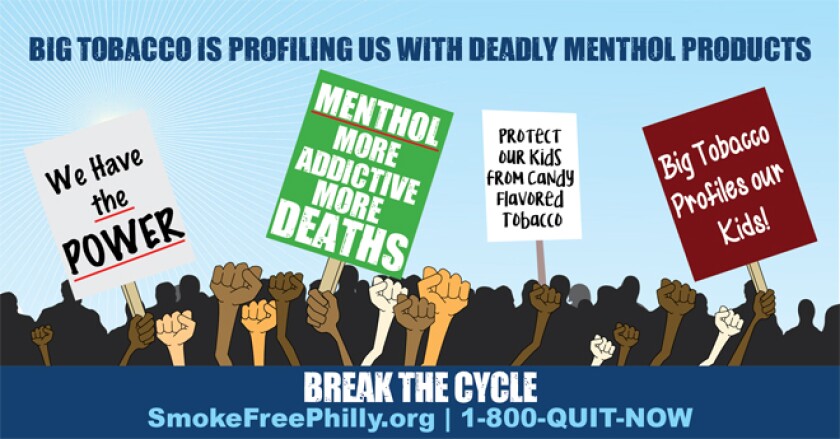They bring to light the fact that tobacco companies racially profile as a form of marketing. According to one of the ads, a study in the American Journal of Public Health found that tobacco advertising in big cities is 10 times more likely to appear in black neighborhoods.
Big Tobacco isn't the only industry that sells unhealthy products and engages in racial profiling to do it. The soda industry is guilty, too.
In California, MapLight, a nonprofit that researches campaign spending, found that soda lobbyists targeted the state legislature’s Latino Caucus in the 2015 election cycle. The soda industry gave, on average, twice as much money to members of the caucus than other legislators.
At least one city is fed up.
Philadelphia, which already angered the beverage industry last year when it became the nation's first big city with a soda tax, is now taking on the tobacco industry. It has started a public awareness campaign that -- similar to the Truth ads -- warns minority youth they're being profiled by tobacco companies.
The campaign, called "Break the Cycle," is part of SmokeFree Philly, a broader campaign to end tobacco use in the city. Ads like the one below will run on radio stations and billboards.

(Philadelphia Department of Public Health)
In Philadelphia, 75 percent of tobacco retailers are in low-income neighborhoods. A 2013 study from the University of Pennsylvania found that the poorer a neighborhood was, the more tobacco retailers it had; and stores that accepted food stamps were significantly more likely to have ads for tobacco and soda products.
“This is nothing short of a chemical assault," said Philadelphia NAACP President Rodney Muhammad at an event unveiling the city's campaign. “We have to go to war with these companies. They fight for profits. We’re fighting for lives.”
Philadelphia’s campaign mostly targets tobacco’s racial profiling, but Health Commissioner Tom Farley also wants to bring special attention to candy-flavored cigarillos that he says are “clearly targeted to kids" and are changing their smoking habits.
Cigarillos are larger than cigarettes and wrapped in tobacco like a cigar. However, they're much cheaper than either: A pack of four costs around $1. In 2014, the U.S. Food and Drug Administration found that cigarillos were the most commonly used tobacco product among African-American high schoolers.
“You can get any flavor -- from French vanilla to fruit punch," he says. "We’ve seen a change in the past couple of years. Kids are smoking more cigars than cigarettes. We think it’s because of these marketing tactics."
Profiling also appears to have paid off for the soda industry.
In California, three members of the Latino Caucus abstained from voting on a 2015 soda tax bill, ultimately killing the legislation. Alec Saslow, communications manager for MapLight, says it’s difficult to assign causation because it’s outside of the scope of what the organization researches, but “what we see in the data, the contributions point to a pattern.”
The health commissioner in Philadelphia says he isn’t surprised to hear about soda interests courting Latino lawmakers in California. It’s just part of the bigger pattern, he says, of unhealthy product makers trying to assert dominance in minority communities.
“They can make it look like there’s community resistance to regulation,” says Farley.









